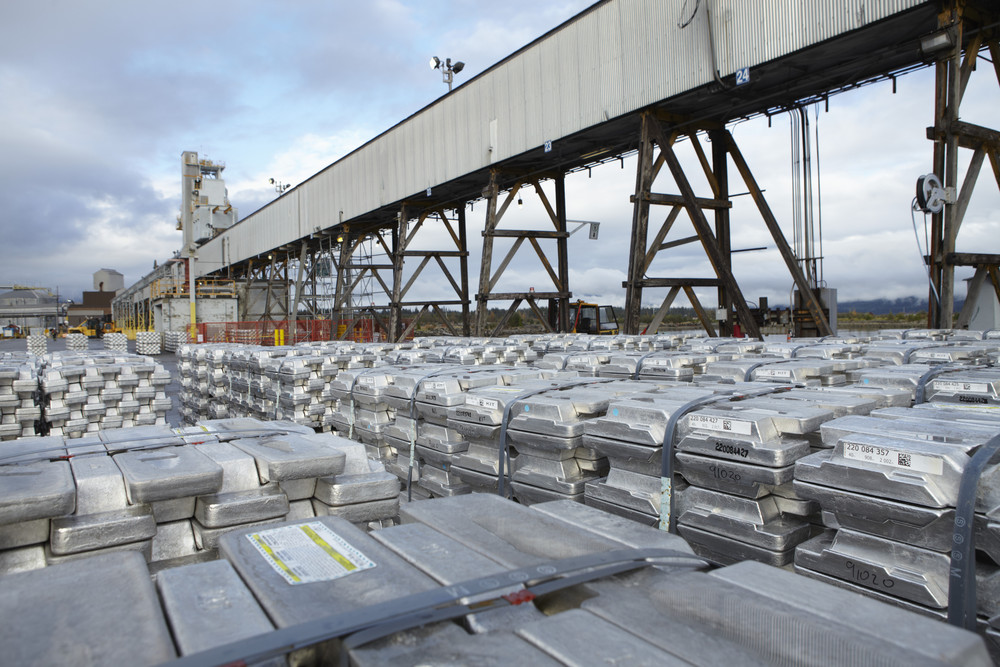
* Impact on aluminium prices seen limited
* U.S. aluminium premiums expected to rise further
* U.S. imported 695,778 tonnes of Russian aluminium last year
* Some Japan customers to keep supply deals, change settlement currency
By Melanie Burton
MELBOURNE, April 9 (Reuters) – Rio Tinto will be among the biggest winners from the U.S. sanctions imposed on Russian aluminium giant United Company Rusal as the penalties further shake up the global metals trade and boost costs for U.S. consumers, industry sources said on Monday.
The United States on Friday imposed the sanctions against businessmen, companies and government officials that are considered associates of Russian President Vladimir Putin in one of Washington’s most aggressive moves to punish Moscow for a range of activities.
“Rio Tinto would be well placed to replace that metal with any unsold metal if the sanctions stuck”
Rusal, the world’s second-largest aluminium producer, and its former President Oleg Deripaska were included on the list. Rusal said the sanctions “may be materially adverse to the business and prospects of the group.” Shares plunged 50 percent in Hong Kong on Monday.
Traders and analysts said the sanctions would accelerate a rerouting of global aluminium shipments that began last month after the U.S. imposed a 10 percent duty on aluminium imports under the so-called “Section 232” of U.S. trade laws. “It probably reroutes a lot of the trade flows,” said analyst Daniel Morgan at UBS in Sydney. “It is beneficial if you are a producer that is (compliant with the section 232 tariffs) because you’ve got an ability to sell into the U.S. and other markets.”
After U.S. President Donald Trump announced the tariffs, he later exempted the European Union and other trading partners including Canada and Australia until May.
The new sanctions on Rusal would disrupt unwrought Russian aluminium imports, which in 2017 were 695,778 tonnes out of a total of about 5 million tonnes, according to the International Trade Centre (ITC).
Rio Tinto would be well placed to replace that metal with any unsold metal if the sanctions stuck, Paul Adkins, managing director of consultancy AZ China said. Rio Tinto declined to comment.
U.S. aluminium premiums traded at 18.4 cents per pound, or about $405 per tonne on top of futures prices
The company produced 3.6 million tonnes of aluminium last year from its operations including in Canada and Australia, which are exempted from the section 232 tariffs.
“All this does is make things more expensive for Americans,” said one aluminium trader in Singapore. “Everyone who has a duty free exemption is laughing.”
U.S. aluminium premiums traded at 18.4 cents per pound, or about $405 per tonne on top of futures prices. Those premiums are expected to climb.
“Overall, it should be near-term bullish for the premium and price,” said another physical metal trader in Singapore.
Rising premiums could draw more Chinese aluminium to the U.S. since the additional cost of the section 232 tariff is less than the U.S. premium, said AZ China’s Adkins.
A source at a Japanese aluminium fabricator said his company does not plan to change its supply contract with Rusal since it buys not only refined aluminium but also semi-customized products and can not find easy substitutes.
However, if their customers, such as automakers, decide to follow the U.S. sanctions, then the company may have to think twice about buying metal from Rusal, he said.
(Reporting by Melanie Burton in MELBOURNE; Additional reporting by Yuka Obayashi in TOKYO; Editing by Christian Schmollinger)